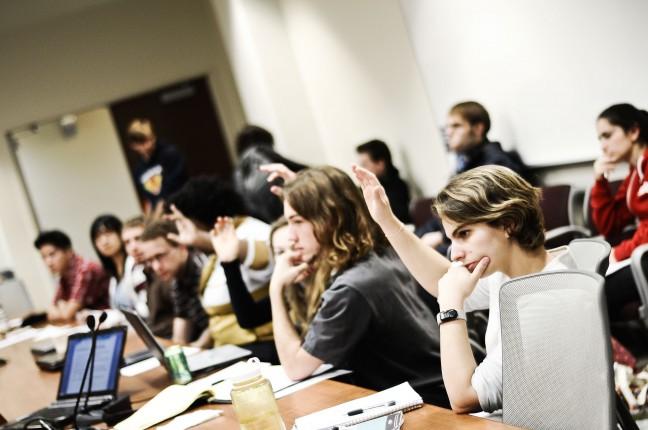This summer, U.S. Sen. Ron Johnson, R-Wisc., begged the question, “If you want to teach the Civil War across the country, are you better off having, I don’t know, tens of thousands of history teachers that kind of know the subject, or would you be better off popping in 14 hours of Ken Burns’s Civil War tape?”
After beginning another semester as a history major at the University of Wisconsin, I find this statement especially depressing and short-sided as it displays a classic failure to appreciate the purpose of studying humanities.
Now, I want to make it clear I understand where the senator came from. Johnson posits himself a fiscal conservative who, if reelected, promises to fight to cut down wasteful spending. During Johnson’s time at the University of Minnesota, he studied business and accounting. So for him, the idea of eliminating thousands of expensive professors with one blow of cheap Ken Burns tapes makes complete sense.
But Johnson falls into a trap many politicians, such as Gov. Scott Walker, fall into when considering higher education. The goal of higher education in humanities does not lie in the transferring of finite facts from the mind of a professor to the minds of students. Instead, the true goal of higher education focuses on the development of skills for further exploration.
It does a student no good to know that General Robert E. Lee surrendered on Apr. 9, 1865, since somebody can simply Google that as I just did. But a student does benefit greatly from engaging in conversations with a multitude of professors who each bring a different lens to help the student examine a subject. In the case of studying history, the true purpose is not as simple as learning about yesterday. Instead the purpose lies in learning to understand tomorrow.
In Johnson’s ideal world, everybody would learn history from the same set of DVDs, but nobody would gain the benefits of studying history. I understand Johnson’s method garners significant cost savings, but the fertilization of the mind should never be skimped on.
Walker doesn’t seem to understand this either. Walker’s decision to slash the UW System’s budget significantly made a lot of noise, but this is actually the less heinous of Walker’s education cuts. In Walker’s first year in office, per pupil spending at the K-12 level decreased by 6.2 percent.
Impacts of Walker’s UW performance funding plan remain unclear
I understand the pressure Walker must have felt to reduce the state deficit in light of the 2008 economic downturn, but if the answer is reduced spending on education, it is a sign we are asking the wrong questions.
Anybody who has taken introductory economics knows investing in education represents one of the easiest ways to grow the economy over the long run. But therein lies the problem — over the long run.
The realities of our political system create an untenable imbalance between what benefits a politician’s career, and what benefits the state or country in the long run. When a politician cuts spending on education, the repercussions of that decision emerge years in the future, long after that politician has moved on.
Funding disparity between STEM, humanities programs impacts enrollment
Thus, it falls on the voters to recognize that proposals such as Johnson’s plan to eliminate history teachers, or Scott Walker’s budget cuts to K-12 education, simply represent our politicians kicking the can down the road to the next generation. The most damaging thing a politician can do to future generations isn’t the accumulation of debt, but sacrifice a future generation’s right to the best education possible.
So if you represent part of the 71 percent of Americans who think the country is on the wrong track, a simple equation exists to make America great again: invest in our youth.
Connor Allen ([email protected]) is a junior majoring in history and economics.














